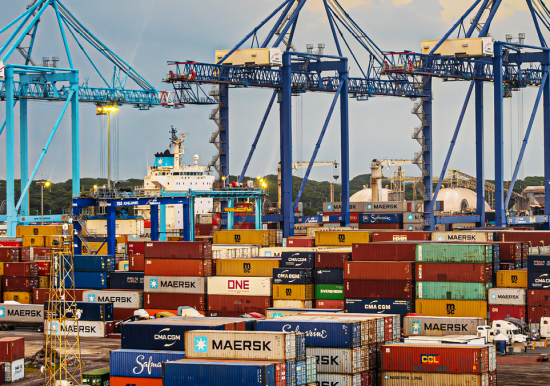
Country Spotlight 2025 & Practitioner Story: Vietnam
Vietnam stands out as one of Asia Pacific’s most remarkable improvers, rising 12 ranks from 2021 to 2025. In just one generation, the country has been transformed from one of the world’s poorest nations into a dynamic middle-income economy, driven by bold economic reforms and global market shifts.1 It has made notable and widespread gains, improving in six of the seven CGGI pillars, with the sole exception of Global Influence & Reputation.
In the Leadership & Foresight pillar, Vietnam has surged to 30th place globally. The nation has excelled across all five indicators, with particularly stellar progress in Strategic Prioritisation and Long‑Term Vision. Vietnam has embarked on an ambitious state‑led reform agenda to become a developed, high‑income nation by 2045. In 2024, the Ministry of Home Affairs spearheaded a transformative overhaul of the political system—streamlining government agencies, consolidating ministries, and implementing sweeping structural changes aimed at fortifying governance and public service efficiency.2
Vietnam’s CGGI Rank

Vietnam’s Pillar Dashboard

Endnotes
- The World Bank In Viet Nam. (8 October 2024). https://www.worldbank.org/en/country/vietnam/overview
- Thu, H. (11 February 2025). Restructuring Vietnam’s government: A historic reform in just two months. VietnamNet Global. https://vietnamnet.vn/en/restructuring-vietnam-s-government-a-historic-reform-in-just-two-months-2368299.html
Taking Vietnam to the Next Level
ISOL@MOHA is a governmental institute for fundamental and applied research in organisational science and state organisation in Vietnam. It recommends ways to streamline government, such as by enhancing efficiency, reducing the administrative burden on citizens and enterprises, and advancing e-government and digital government initiatives. ISOL’s Director General discusses how Vietnam is working to modernise and improve efficiency in government.
Vietnam’s stated goal is to become a developed country by 2045, with a high income and a democratic and equitable society. What is its roadmap for development?
To become a high-income society, Vietnam aims to maintain a high economic growth rate, at around 6.5% to 7.5% per year. However, economic growth must go hand in hand with sustainable development, including environmental considerations. There must also be comprehensive social development to ensure social equity and improve people’s quality of life.

Economic growth must go hand in hand with sustainable development, including environmental considerations.
Vietnam also needs to shift its economic structure to industries with higher added value, based on a foundation of science, technology, and innovation. The government continues to improve institutions and create a favourable business environment, so that by 2030 many enterprises will develop into large multinational corporations, capable of competing internationally in basic and priority industries: especially in the fields of information and digital technology, telecommunications, automation, new materials, and biotechnology.

Vietnam is trying to create more favourable conditions for the private economy to develop. For instance, it is prioritising completion of key national infrastructure projects, especially for transportation (including high-speed roads and railways) and energy (such as nuclear power projects), alongside a transition to greener growth.
To strengthen accountability and attract investors, the government is pursuing measures to promote more transparency and market stability, particularly in the stock market. It is also encouraging Vietnamese companies, particularly listed corporations, to raise their corporate governance to international standards, such as through the Vietnam Corporate Governance Scorecard (VNCG50).1 Vietnam is also deepening its economic integration with the global supply chain and international trade, taking advantage of its free trade agreements (FTAs) and diplomatic ties.
To support these cross-sectoral initiatives, the government is working to reduce its own administrative red tape and improve the capacity, effectiveness, and efficiency of its state apparatus. In Vietnam, the state plays a central role in leading national modernisation efforts, ensuring that they proceed according to important principles such as public accountability and the rule of law. It also prioritises broad societal participation, and consensus in making decisions with national impact, harmonising interests among stakeholders.
Vietnam is currently focusing on strengthening its legal framework and system of regulations, processes, and procedures: clarifying responsibilities and risks while ensuring policy stability and consistency. The government is also establishing mechanisms for dialogue between the public and private sectors to discuss issues, share information, and build mutual understanding. There are now a number of annual conferences between the government and domestic and foreign enterprises, as well as foreign investors and sponsors. A number of priority areas for cross-sectoral partnership have been clearly identified, including investment in infrastructure and the development of science, technology, and innovation.

In February 2025, Vietnam’s National Assembly approved the largest government overhaul in decades, including a 20% reduction in the size of ministries, government agencies, and workforce. What will this mean for Vietnam’s national government capabilities?
Since the 1990s, Vietnam has been pursuing a comprehensive public administrative reform programme to enhance governance quality and manage the transition to a market economy. This is an ongoing process, and reforms are currently in their third phase (2021–2030).
More recently, the government has intensified efforts to streamline the administrative apparatus, including reducing the number of governmental entities as well as reviewing internal organisational structures. From 1 March 2025, the previous 22 ministries and ministerial-level agencies have been reduced to 14 ministries and three ministerial-level agencies. Government-affiliated agencies have been merged and reorganised. The civil service workforce is not just being reduced—there are also moves to improve its quality by shifting it towards a more merit‑based, competency-driven system aligned with job positions.
These moves complement other public sector reform efforts over the past five years. For instance, there has been considerable progress in combating corruption and wastefulness, as well as measures to ensure more accountability and transparency, particularly in public finance and state budget management. These efforts are beginning to yield positive outcomes, with improved public perception of and trust in the government. The Provincial Governance and Public Administration Performance Index (PAPI),2 an annual nationwide, citizen-centred policy monitoring framework that reflects citizens’ assessments of government performance, has shown notable improvements in transparency, the rule of law, efficiency, and government effectiveness.
As part of national digital transformation strategies, there are also efforts to make better use of digital technologies in the public sector to enhance government efficiency and improve service delivery. One of these is the National Public Service Portal,3 which hosts more than 4,200 online public services.

In pursuing government reforms, what are some of the challenges and opportunities Vietnam faces?
In Vietnam, reform processes are often approached with caution at the start. Once they are implemented however, there tends to be a high degree of consensus across government.
One prevailing challenge is the need to carry out different reforms simultaneously. Reducing regulations and streamlining the administrative apparatus ought not to disrupt the proper functioning of the state, which can impact citizens, businesses, and the country’s socio-economic development.

To be effective, reforms must be comprehensive, integrated, and in tandem with other conditions such as a right-sized, competent, and qualified civil service workforce. Better governance can also result from streamlining inter-agency connections, eliminating redundancies in public sector functions, and the good use of information technology and digitalisation.
At ISOL, our research and policy recommendations focus primarily on key challenges for digital transformation and public sector human resource management—particularly attracting and retaining talent, and developing digital skills among civil servants. In recent years, training programmes for digital transformation have become a key component of professional development across ministries, sectors, and localities.
What competencies, qualities, attitudes should future government officials have, and how is Vietnam cultivating them?
Given the rapidly changing economic, political, and social landscape, both domestically and internationally, the next generation of public sector officials and leaders in Vietnam should have strategic planning capabilities; they must be able to formulate and communicate a vision, inspire teams and the community, and help guide and motivate development. They need to make quick decisions based on data and evidence through the effective use of new technologies, particularly digital technology, including artificial intelligence (AI). They should promote innovation within the public sector to enhance effeciency and the quality of services. As professionals, they must have a robust understanding of their specialised fields of responsibility, as well as the interdisciplinary knowledge needed to address complex issues.
Future civil servants and public sector leaders must also uphold a spirit of service, responsibility, professionalism, and ethics. They should have an attitude of humility, listen actively to different views, be open to new ideas, and be willing to learn from others’ experiences as well as from real world situations. To facilitate innovation and creativity within the system, they must be ready to accept and manage risk, and be able to experiment with new ideas and approaches without being afraid of change.
Future civil servants and public sector leaders must also uphold a spirit of service, responsibility, professionalism, and ethics.
To inculcate these qualities, Vietnam conducts comprehensive training and professional development programmes for civil servants at both central and local levels. These programmes cover general policy planning and design capabilities, as well as specific competencies civil servants need to be effective in their roles. They also cultivate key skills such as communication, citizen engagement and complaint handling, as well as core values such as the public sector code of conduct, responsible and ethical public service, and a healthy workplace culture.

A professional, transparent, and effective civil service is upheld by mechanisms for the inspection, supervision, and accountability of public officials. In empowering and decentralising state management functions, public officials are entrusted with greater authority to make decisions and carry out tasks, whilst also holding them to higher accountability for their work outcomes. For this approach to work, an effective framework of appropriate rewards and strict disciplinary measures is essential.

Endnotes
- Anh, N. (30 November 2024). Vietnam launches VNCG50 scorecard to enhance corporate governance. Vn Economy. https://en.vneconomy.vn/vietnam-launches-vncg50-scorecard-to-enhance-corporate-governance.htm
- The Viet Nam Provincial Governance and Public Administration Performance Index (PAPI). https://papi.org.vn/eng/
- National Public Service Portal. https://dichvucong.gov.vn/p/home/dvc-trang-chu.html

DR LE ANH TUAN
Director General, Institute of State Organizational and Labor Sciences, Vietnam
The Institute of State Organizational and Labor Sciences, Ministry of Home Affairs, Vietnam (ISOL@MOHA). He specialises in state management, administrative procedures and reform, and the civil service, with a focus on personnel management and talent recruitment in government. He has led research projects on decentralisation and government organisation, and also contributes to scientific research and policy consultation for the Ministry of Home Affairs.
More Stories


Global Influence & Reputation Country Snapshot: Türkiye

